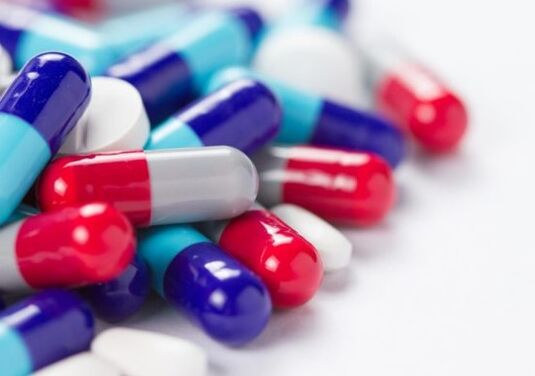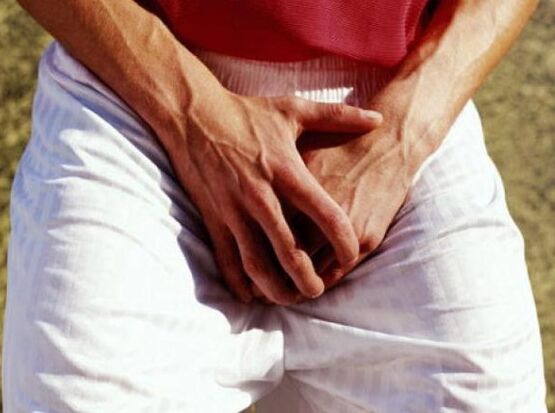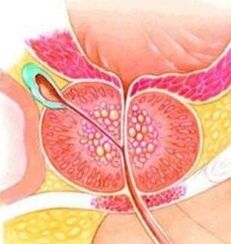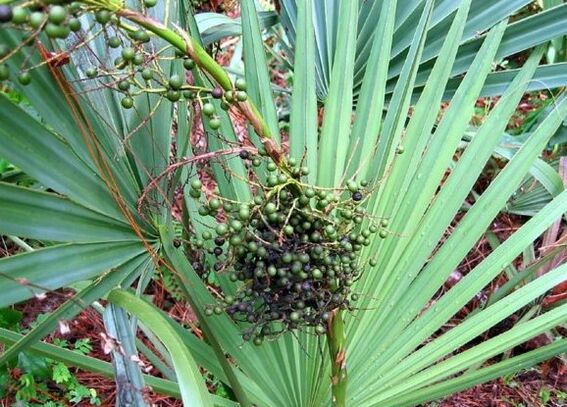Prostatitis is an inflammatory disease of the prostate gland that develops against the background of exposure to many pathogenic factors (such as urinary tract infections, stagnation of secretion fluid in the vesiculum, violation of venous outflow in small pelvic vessels, etc. ). The polyethodiological nature of prostatitis determines the need for a comprehensive approach to treatment. Therapeutic protocols usually consist of several drugs aimed at eliminating the infectious pathogen (in the case of bacterial inflammation), alleviating the inflammatory process, normalizing venous and lymphoid pods, and elimination of remaining inflammatory phenomena.
Medication for prostatitis remains one of the most important and cheapest methods for outpatient treatment. At home, a person can use rectums, tablets, capsules. Ointments and gels of inflammatory diseases of the prostate are rarely used due to the inconvenience of their application. Injections and injections (the introduction of antiseptics, antibiotics and ozone solutions directly into the prostate part of the urethra) are performed at the clinic's procedural office or in a urological hospital.
Cheap antibiotics (basic therapy)
Antibiotics are drugs that can suppress the growth of living microorganisms at a rather low concentration and cause death. This group requires the treatment of infectious prostatitis, which accounts for up to 78% of the number of men with inflammatory diseases of the prostate. Bacterial prostatitis and prostatostitis (combined inflammation of the prostate glands and bladder) has its own characteristics that should be taken into account when selecting an effective treatment system.
- Antibiotics should be taken for at least 4 weeks in any form of infectious prostatitis. This applies even to these drugs, which are usually 7-10 days.
- The sensitivity of microorganisms, which most often cause inflammatory methods in the prostate gland (Escherichia coli O157/H7 serotype, stool enterococcus, etc. ), is low enough for the drugs of the penicillin line, as these bacteria have a dense capsule membrane. Therefore, the drugs of a group of semi -synetic penicillins are only prescribed for infectious prostatitis in combination with other antibiotics.
Listen!Patients with severe immunosuppression (inhibition of immune response in the background of interaction with non -specific factors), especially for the proper dose of antibiotics, which ensures the effect of highlighted bacteria. Not only can they be ineffective in severe forms of immune deficiency, but also dangerous to health because of the high risk of superinfection.
Cheap bactericidal medicines

When using antibiotic therapy, it is important to achieve a bactericidal effect, which consists not only on the suspension of pathogens but also of their death. It is advisable to use therapeutic doses for at least 28 days (for oral dosage forms) for the treatment of prostatitis, especially in the case of a recurring or chronic course.
Less often, 1%is used to treat prostatitis based on papaverine hydrochloride. Papaverine preparations are advisable to use during aggravation and in chronic pelvic pain syndrome. They are used rectally in the form of suppositories, 1 candle per day. The recommended treatment is 10 days.
Corresponses of Urodinamika Based on Animal Prostate Hood
The excuse for prostate (extract) is a polypeptide extract extracted from the dried tissues of the young gobik's prostate gland that are sexually mature and ready for fertilization (7-10 months bulls). The formulations based on such extract are indicated only for the treatment of chronic forms of prostatitis (congestive, aseptic, chronic bacterial and asymptomatic prostatitis) or chronic forms of prostate adenomas.
Treatment of this group, produced in the form of candles, tablets (capsules) and lyophilizate, results in a fairly stable positive effect on about 31, 3% of patients, which is considered a rather high indicator that determines the feasibility of the prostate extract to be accomplished. The therapeutic effect of animals is declared by the following uodynamic repairs:
- Normalization of the secretory activity of prostate glands;
- improving the outflow of prostate gland secretion and stagnation in prostate and pelvic organs;
- reduction of edema;
- Preventing the aggregation (merger) of platelets and blood clots in the glandular vessels;
- Eliminating the infiltration of leukocytes at the center of inflammation.

The prostate extract has a positive effect on metabolism and metabolism in the tissues of the gland, and the chemical and rheological indicators of prostate secretion.
Subtract drugs in Serenoa Movetur
Serenoa Movetur (palm, creeping palm) is a herb whose unique properties of ancient Indians first discovered the treatment of inflammatory diseases of the genitourinarinal system in men. To date, the Sabal Palm extract is used as an additional tool for the treatment of inflammatory pathologies of prostate (including DHCH).
According to their pharmacological properties, drugs made based on the extract of creeping palm are related to drugs that correct corrodinamic indicators and help to develop metabolic processes in the prostate gland. Like the funds based on the prostate extract, these drugs have a fairly high cost, so patients with disabilities have to provide all the information about the cheaper groups of the group.
In hospitals, Sabal Sabal can also be used in the form of dry extract injections and infusions.
Microcirculation correctors
The stagnant forms of prostatitis requires a correctional of angio transceptors and microcirculation, which usually develop in the background of sedentary lifestyle and hypo-dynamic disorders. The funds of this group have vasodilating and angioprotective effects, preventing platelet aggregation, improving blood flow and lymphatic fluid in the microcirculation channels. 
Listen!If diagnostic manipulations that require invasive methods are required, deleting blood condemning blood at least 3 days prior to the test.
What other drugs are prescribed to treat prostatitis?
The combination of medicines, which are effective and appropriate in each case, is determined by the doctor. In most cases, drugs from the NSAID group (Diclofenac, ketoprofen) are used to stop the inflammatory process. During the recovery phase, the use of carnitine, vitamin and vitamin-like products justifies. In the case of abundant washing on the urinary tract, patients with a high risk of upward infection are made diuretics. We also show the use of plant fees with diuretic and anti -inflammatory effects.
Acute inflammation prescribes analgesics and antipiretics to eliminate heat and reduce pain. Alfa blockers are prescribed for patients with high urination disorders with pain.
What has to do with chronic inflammation: Useful tips
In chronic stagnant, bacterial or aseptic prostatitis, it is important to take the prescribed drugs according to the recommended scheme, but to modify proper food and lifestyle to eliminate all provoking factors.
- In the diet of men with prostatitis, there should be sufficient protein, zinc, selenium, chromium, and some vitamins involved in the secretion of the seminar. The daily menu is useful for seafood and fish, nuts, seeds, fruits, greens, eggs and dairy products.
- Cholesterol should be checked to avoid relapse. It is important to monitor the content of the fats in the diet and to avoid frequent and increased use of fatty products.
- Sexual life should be regular. Long -term abstinence contributes to stagnation of the prostate secret and the development of prostate stagnation. In a healthy person, the period of abstinence from intimacy should not exceed three days.
- Insufficient motor activity is one of the main causes of inflammatory changes in the tissues of prostate. In addition to special therapy gymnastics, men are recommended to do morning exercises, walk a lot and visit the swimming pool.

Further observation after the main stage of treatment involves consultation and control of the urologist at least 3-4 times a year, as well as the transfer of laboratory diagnostics (urine test, prostate secretion) and prostate gland and bladder ultrasound.
Medicines are the basis for the therapy of the prostatitis and other inflammatory diseases of the genitourinary system. The pharmaceutical industry offers a fairly large selection of cheap and effective drugs in any form and stage of prostatitis. Only the attending physician should perform the meetings, taking into account the dynamics of the disease and the patient's unique characteristics. Self -healing, especially drugs with antibacterial effects, are unacceptable due to the high risk of superinfection.























